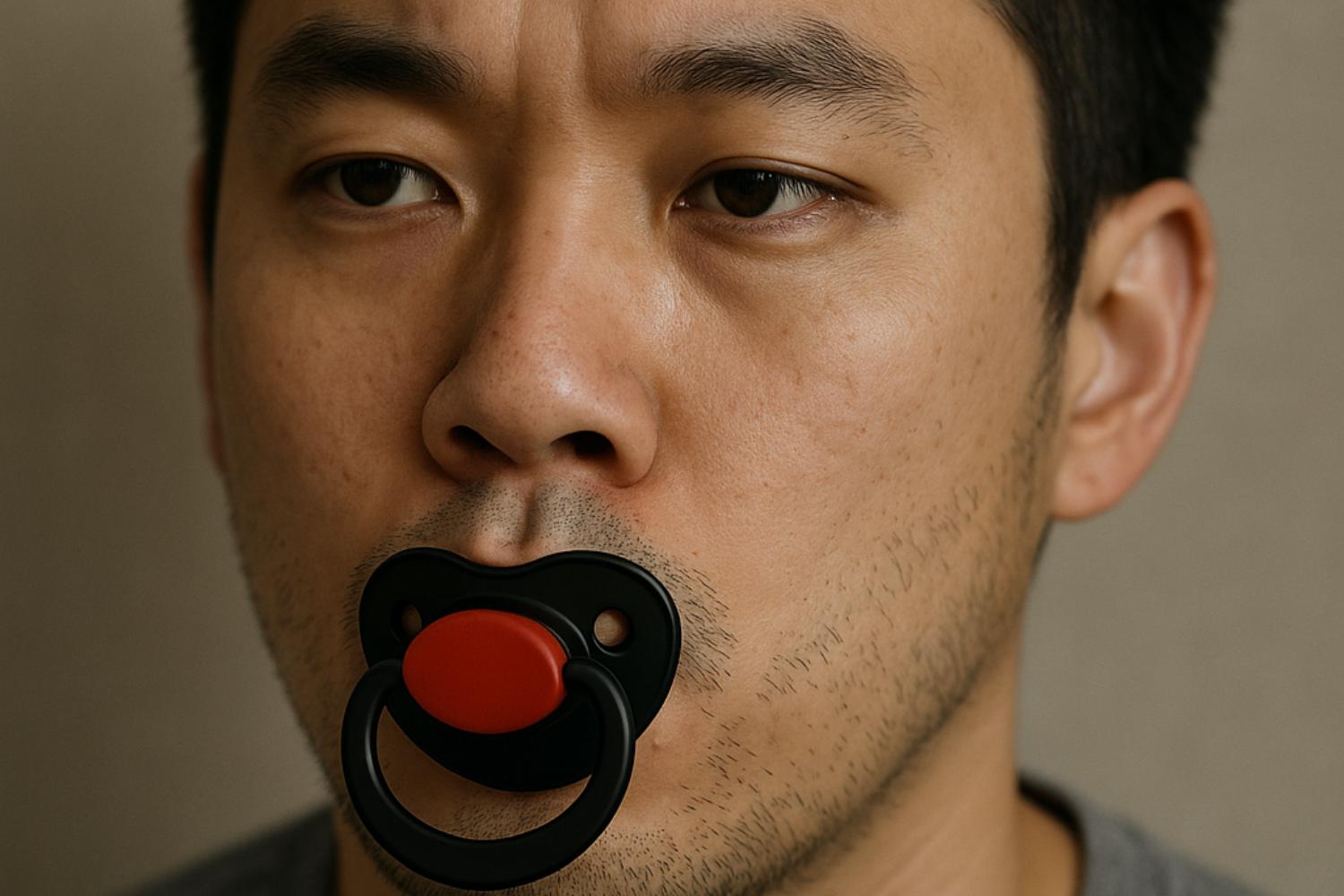In China, more young adults are turning to pacifiers for stress, sleep, and anxiety relief—but experts warn of real health risks.

@AI generated image
In recent months, a curious trend has taken root in China—one that has left many people quite literally speechless. More and more young adults are turning to pacifiers as a way to cope with stress, anxiety, insomnia, and even as a tool to quit smoking.
Once considered nothing more than eccentric collectibles, these silicone accessories are now marketed as sleep aids, relaxation tools, and smoking cessation supports. On major Chinese e-commerce platforms such as Taobao and JD.com, the trade is booming. Prices range from as little as 10 yuan (about $1.40 / €1.30) to as much as 500 yuan (around $70 / €65), with some online stores reporting thousands of sales each month.
According to psychologists, this fascination with pacifiers can be traced back to what’s known as regression—a psychological phenomenon where people under extreme pressure retreat into childlike behaviors. A pacifier, in this context, becomes a symbol of safety and comfort, evoking memories of a time when life’s problems were smaller, or perhaps didn’t exist at all.
@bolnews چین میں چوسنیوں کا استعمال، حیران کن وجہ BOLNews BreakingNews China MentalHealth Pacifier Viral
Hidden dangers behind the comfort
On social media, especially TikTok, videos are multiplying of adults sucking on pacifiers during traffic jams, burnout episodes, or tense workdays. Many users claim they feel calmer, sleep better, and are able to focus more. Some even say they prefer pacifiers over night guards, finding them both cheaper and more comfortable.
But experts warn that this newfound habit is not without risks. Tang Caomin, a dentist at Sichuan University, explains: “The oral structure of an adult is very different from that of a child, and prolonged use may cause dental malocclusion, temporomandibular joint problems, pain, and even restrictions in mouth opening.” He adds that the materials and designs can irritate the mouth’s soft tissues, sometimes leading to lesions or ulcers.
The most serious concern, however, is their use during sleep. A pacifier can interfere with breathing and, in severe cases, pose a risk of suffocation. Despite these warnings, the trend shows no signs of slowing down. For many, the act of symbolically returning to childhood offers a way to navigate what often feels like a hostile and overwhelming adult world.
And so, somewhere between a mortgage payment and a stressful business meeting, there are those who choose to take a brief pause—with a pacifier in their mouth. It may not be the ultimate solution, but for some, it’s a small ritual that helps them survive the jungle of modern life.
@thebentist Why Using a Binky as an Adult SUCKS! 🦷🚫 #binky #teeth #adult
♬ original sound – The Bentist / Orthodontist 🦷 – The Bentist / Orthodontist 🦷
Source: South China Morning Post
